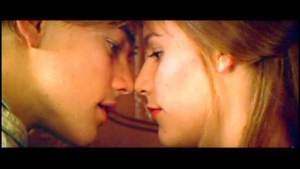Topic of the Week: 2011
 When I look back on 2011, a fog of global, national and local news events form a backdrop to my personal triumphs and tragedies. This is the year I truly discovered the power of technology; it’s the year my daughter turned three; the year my ‘little’ sister got married; and the year my English teacher Mrs. Freeley died (poetically enough, on Christmas Eve). Yet so much more happened and somewhere within it registers that my concerns are but a tiny splash of insignificant paintdrops on a much broader global canvas. So what major events did happen in the past year?
When I look back on 2011, a fog of global, national and local news events form a backdrop to my personal triumphs and tragedies. This is the year I truly discovered the power of technology; it’s the year my daughter turned three; the year my ‘little’ sister got married; and the year my English teacher Mrs. Freeley died (poetically enough, on Christmas Eve). Yet so much more happened and somewhere within it registers that my concerns are but a tiny splash of insignificant paintdrops on a much broader global canvas. So what major events did happen in the past year?
—
2011 was thankfully a bad year for tyranny – the Arab Spring saw popular uprisings explode all over the Islamic world and corrupt governments were overthrown in Tunisia, Egypt and Libya. Social media (like twitter & facebook) made it increasingly difficult for dictators to suppress civil resistance and the effectiveness of people power became an inspiration to suppressed populations worldwide.
—
Economically, the endless global recession hit Europe particularly hard and a €1 trillion bailout fund may not be enough to save the Euro. Certainly in Ireland we appear to have lost our sovereignity (when the Germans get to see our budget before we do) and have tired of austerity budgets yet it seems there is no end in sight.
—
Disillusionment with paying the price for mistakes made by bankers was not confined to Ireland. The Occupy Wall Street movement began in New York in September (protesting against social and economic inequality, high unemployment, greed, corruption, and the undue influence of corporations) and spread worldwide. They believe an awakening is at hand, whereby entire populations will come to realise that democracy is being fundamentally undermined by capitalism, particularly when there is no accountability for the wealthy and the powerful despite their mistakes leading us into the greatest recession since the 1930’s (sadly the more things change the more they remain the same – it all reminds me of that famous Orwellian parable that ‘all animals are equal, but some animals are more equal than others’).
—
Meanwhile, this was a year blighted by natural disasters. Flooding proved a fatal bedfellow, killing 903 in Rio de Janeiro (Jan), 657 in Thailand (July), 434 in Pakistan (Sept), 207 in Cambodia (Sept) and 1249 in the Phillipines (Dec). In March an earthquake and tsunami killed 15,840 in Japan and destabilised several nuclear power plants. In July the UN officially declared a famine in Somalia. Tens of thousands had already died. In October 604 died in an earthquake in Turkey. Our obsession with recession seems suddenly petty by comparison.
—
Yet we are human, and thus weak, and we love a distraction from pain and poverty and hardship. The wedding of Prince William and Kate Middleton was the media event of the year, attracting an estimated 2 billion viewers worldwide. Planking became an internet phemomenon. And in actual real significant good news (rather than tabloid generated nonsense) the world’s first artificial organ transplant was performed in Sweden in July. Closer to home, we elected Michael D. Higgins (the cutest maneen in Ireland according to my first years) as President. Nice to see that a poet and intellectual is our ambassador of choice in an era when stupidity is supposedly glorified…
—
On the 31st of October the world’s population reached 7 billion but – as tends to happen – lots of people also died. We may not shed too many tears for Osama Bin Laden, Muammar Gaddafi or Kim Jung Il but I’m guessing at least some of you will lament the passing of Seve Ballesteros, Amy Winehouse, Steve Jobs and Gary Speed. At home our 7th taoiseach Garret Fitzgerald and former minister for finance Brian Lenihan also died. And if you cast your mind back you’ll remember the tragic murder of Michaela Hart McAreavey last January in Mauritis and the death of six people following an airplane crash at Cork Airport the following month.
—
Finally, Europe had mixed fortunes in 2011. In Ireland, the visit of the Queen was a historic moment reminding us that it is possible to truly put the past behind us and days later we welcomed Barack O’Bama home to Offaly. In Spain the decision of ETA (Basque separatists) to declare an end to their violent campaign for independence after 43 years was widely celebrated. Sadly in Norway, the shootings in Utoya sent a generation of politically active youth to their graves.
—
And so you have it. These are the events we’ll relive on ‘reeling in the years’ in years to come. Click on over to Facebook for links to relevant articles.








